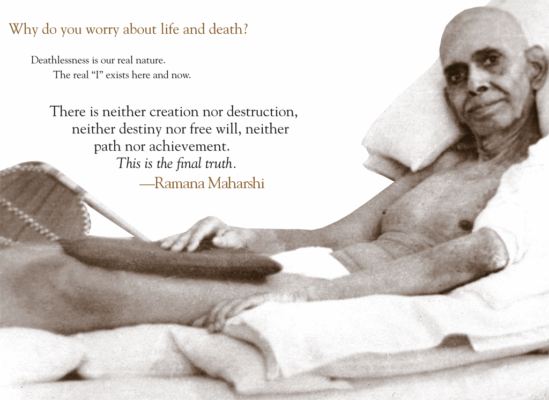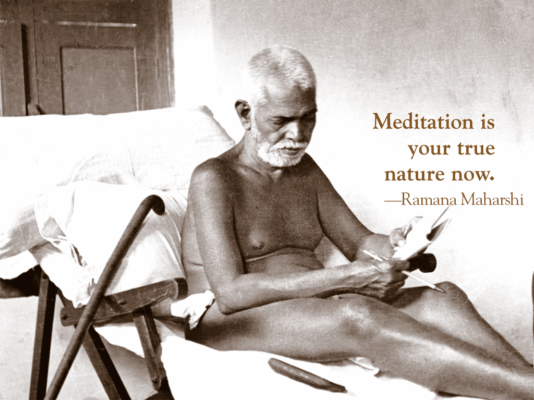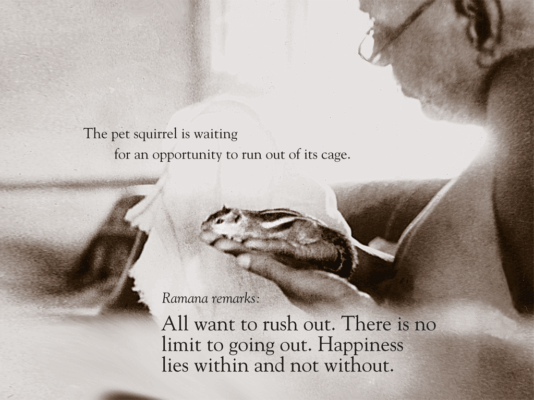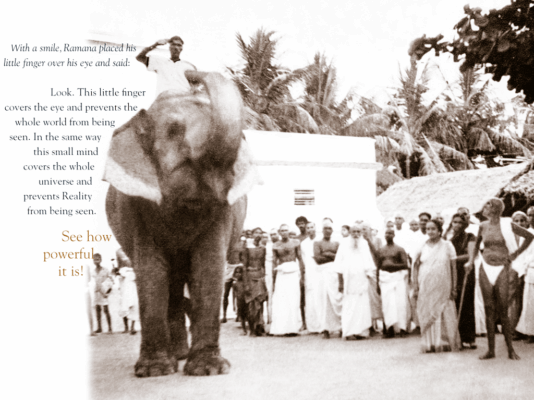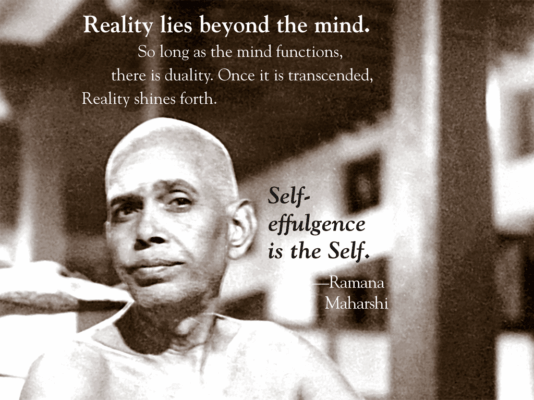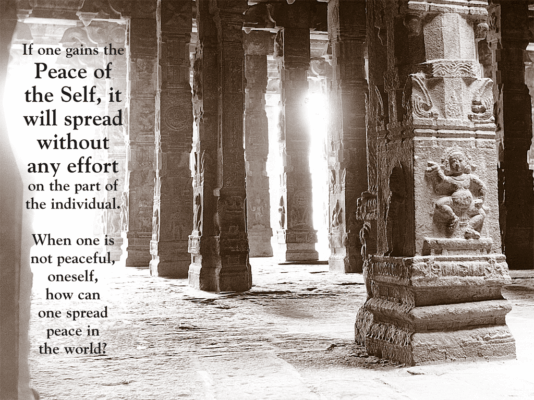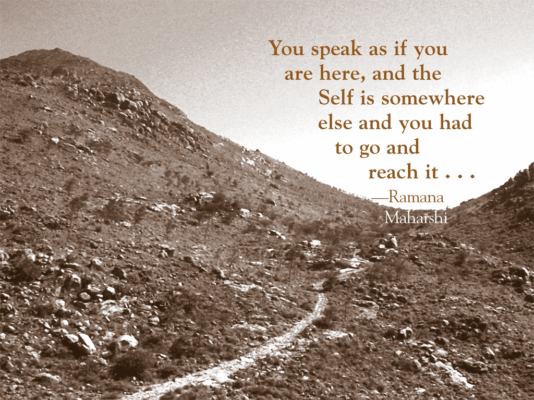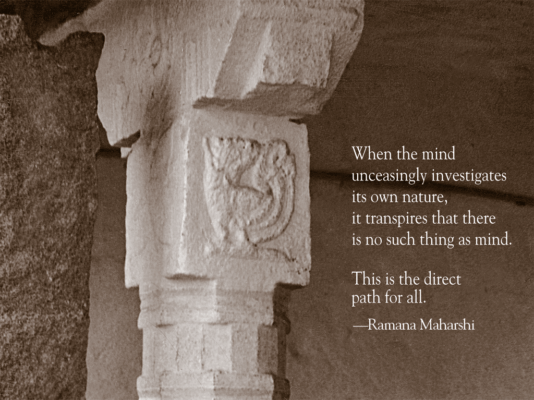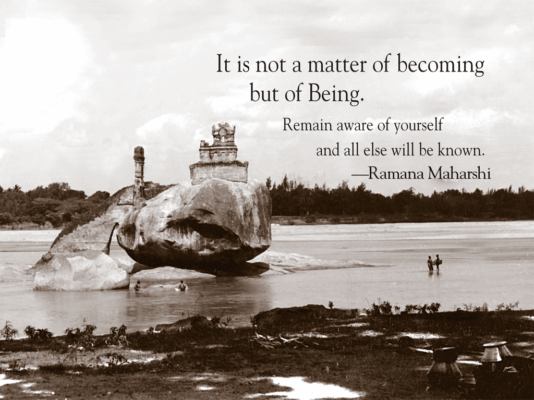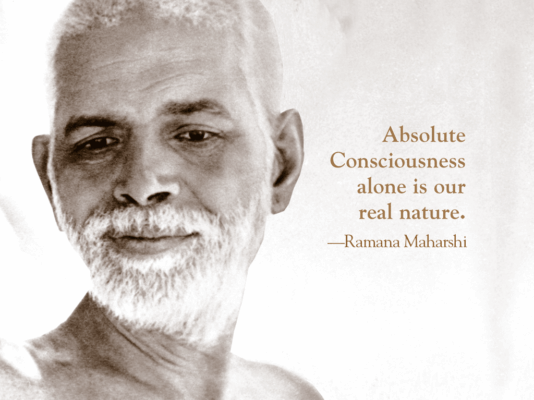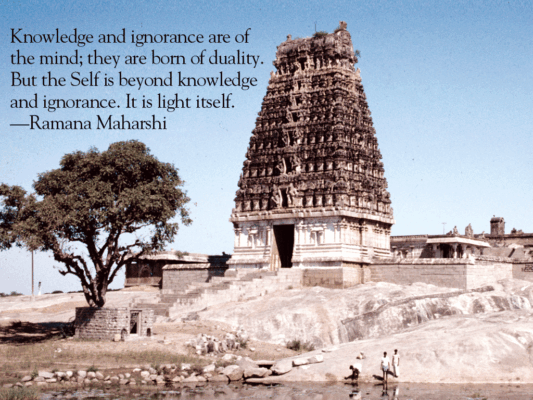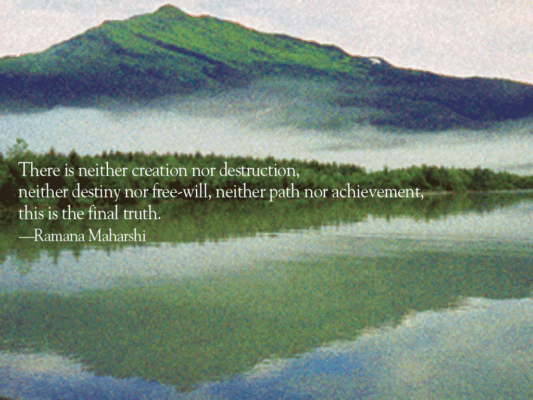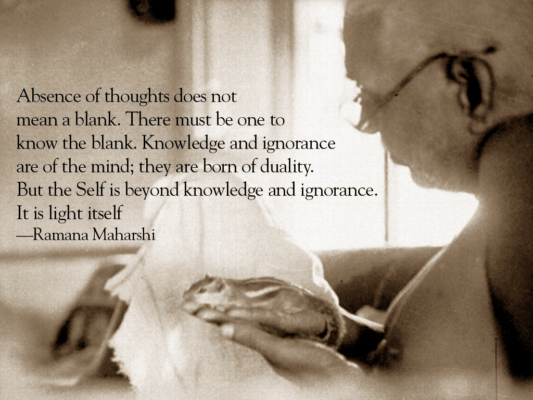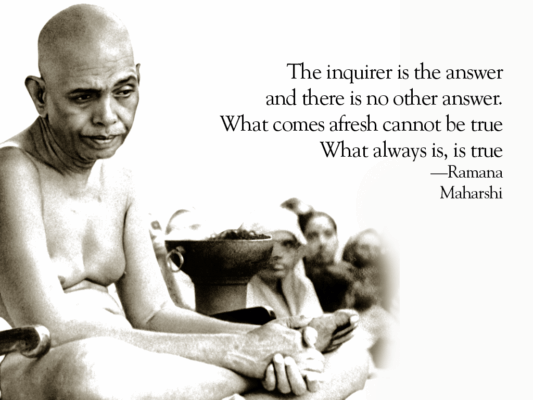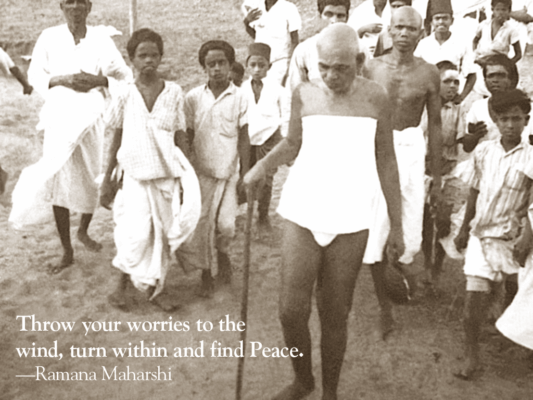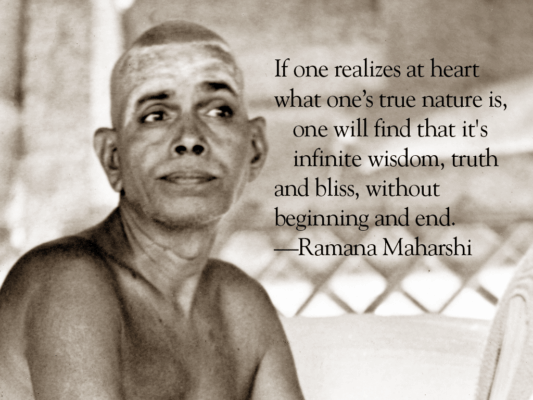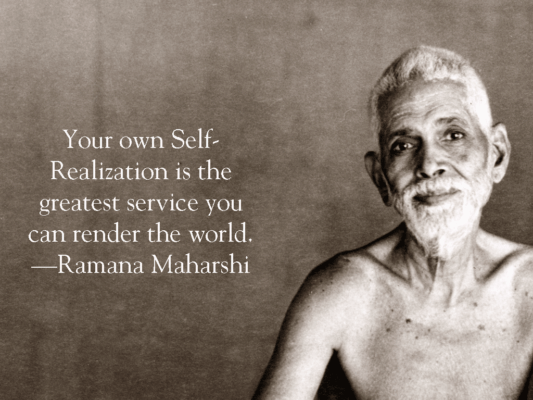The Teachings
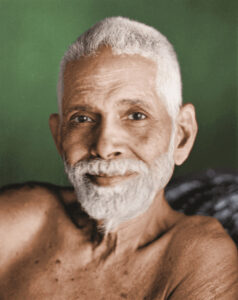
All human beings search for an unending source of peace and happiness. Some turn to religion or philosophy in an effort to find the key, others turn to repeated experiences of enjoyment, and many take comfort in building a financial safety net. Ultimately, we all desire the same goal: to experience enduring happiness.
The many philosophical methods and religious teachings that promise true peace and happiness generally emphasize a “goal” and an “individual” who must attain it. They also often recommend various methods to improve oneself to reach that goal. The common denominator throughout these various means is the “individual” who approaches the Divine, the Absolute, Consciousness (whatever name we wish to call it) to gain that unending peace.
The teachings of Sri Ramana Maharshi help us see firsthand “who” and “what” our true identity is. They reveal, at the most profound level, the very nature of such a search and its outcome. Only when we have tasted the peace and joy of our essential Being does the nature of Reality become clear. We begin to see clearly that there is really nothing to improve, nothing to become, and nothing to change. Our true nature is perfect right now and always has been.
The challenge before us is not one of self-improvement—to make a better “me.” Rather, it is to stop identifying with the psychological impressions and erroneous beliefs that keep us from seeing ourselves as we truly are. In other words, what we generally know about “I” is only limited, secondhand knowledge processed through the filter of the mind and senses.
Ramana Maharshi’s philosophy—if one can even call it that—offers a roadmap to our true Self. He asks us to see through firsthand experience that the objective world has no reality apart from our own Being. In fact, there is no “objective” reality at all. His teachings have grown in popularity and esteem precisely because they offer a clear, direct means to perceive That which is eternal and infinite without a religious or conventional spiritual context.
The term Ramana used to describe the full awakening to our true nature is “Self-realization.” By Self, he refers to the fundamental nature of all beings, the One Reality. The Self is the basis of all, the substrate of the individual that is identical with the Absolute (Brahman). In describing our true nature, Ramana has chosen an ideal term: for what can be nearer than one’s Self.
Maharshi says that forgetfulness of our true nature as the Self gives rise to the “I”-sense. We then speculate about God as a Supreme Being instead of experiencing it directly. Although speculation and discussion prove intellectually stimulating, we can only know for certain about our true nature through the direct experience of Reality. In the end, all religious and spiritual teachings need to answer this question of identity. So, asks Ramana, why not begin from this very point? As he states:
“Whatever be the means adopted, you must at last return to the Self; so why not abide in the Self here and now?”
Self-realization does not involve gaining intellectual knowledge or adopting a particular set of beliefs. “Self-realization,” says Ramana, “is not knowing anything or becoming anything.” It is simply a state of Being, our inherently natural state. Since the mind is only an instrument of the Self, it can never know its true source. Consequently, one can only be That.
Ramana Maharshi’s teachings reflect the philosophical viewpoint of Advaita (not two). This profound view of the nature of Reality removes the distinction between subject and object, seer and seen, one’s self and the world. To the awakened sage, the world is none other than the Self.
Advaita, or nonduality, is is simply being “One without a second,” as the Upanishad states. In truth, there can be no separate existence from the ever-present Reality. As Maharshi points out, what we search for is always within our reach:
“The Real is ever as it is. All we have to do is give up regarding the unreal as real.”
By persistently investigating the nature of the “I,” we see its unstable and fickle nature. As we steadfastly pursue this self-inquiry, the experience of “I,” which we have so long believed to be true, begins to subside, and the universal “I,” which is who we truly are, reveals itself for what it has always been. This is the true spiritual rebirth. As we begin to identify with the Universal “I,” the Self, we also start to live in a state free from ego-based ideas and concepts. We see that the immediate experience of our Being is the screen upon which all life’s events occur. Moreover, abiding peace and happiness, which we elusively sought before, arise spontaneously as our very Self.
Ramana Maharshi continually asks us to return to the Source of our true Being. The simple and direct approach he taught eliminates the need to undertake a path of self-improvement since wherever we go the Self is always present. There are no special requirements for investigating “who we really are,” but he reminds us that earnestness of purpose certainly facilitates the opening of our hearts to the infinite Self.

